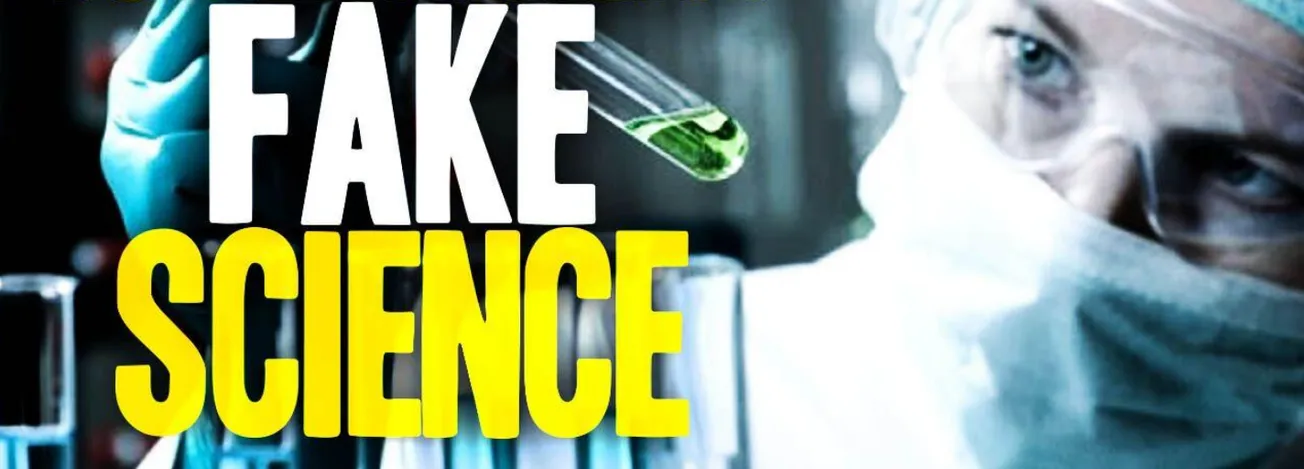Table of Contents
For the last few years, we’ve been constantly hectored to ‘Follow The Science™’. Purely coincidentally, no doubt, The Science™ has an uncanny habit of dovetailing exactly with whatever the latest lefty intellectual fad might be. That’s because The Science™ is not science. But even science ain’t what it used to be.
Your average ‘Follow The Science™’ NPC is not only largely ignorant of actual science, but also of the fact that even actual science is at the moment in a very deep crisis. That crisis is a multi-headed hydra of ideological and economic corruption, including gatekeeping by lucrative publishing houses, peer-review being subsumed by ‘pal review’ and a replication crisis, where results too often are unable to be replicated – even should anyone even try to (which is increasingly rarely).
Another head of the hydra is an apparent wave of scientific fraud and misconduct that is being systematically swept under the carpet.
A leading scientist behind a bid to track scientific fraud and misconduct in Australia hopes it will shine a light on the issue.
Online tool Retractions Australia is tracking scientific papers that have been retracted – or pulled – by peer-reviewed journals.
Quietly retracting papers is a stealthy method of trying to keep scientific malpractice quietly under wraps. Instead of letting the scientific community tear a paper to shreds, post-publication (which is where most of the real stuff of science happens, not in the much-vaunted pre-publication “peer-review”), retraction keeps it all a dirty secret.
Retractions and scientific misconduct, once thought to be extremely rare, have come into sharp focus over the past decade as scientists have discovered more cases.
“The public would be ‘astounded’ at the level of scientific misconduct that goes on”
How common has it become? The Australian database alone already has about 500 entries.
One estimate suggests about one in every 50 published papers has evidence of deliberate manipulation; other scientists have even gone as far as claiming “most published research findings are false”.
Professor Simon Gandevia, deputy director of Neuroscience Research Australia and one of Australia’s most senior scientists, founded Retractions Australia after having increasingly strong concerns about the direction of the country’s research establishment.
Gandevia once harboured a sunny innocence about the state of current science. Not any more.
“I thought I was part of a river that was going in the right direction. But it is totally clear now there are major forces that are distorting all that. I lose sleep at night,” he said […]
These retractions are the dark ocean below high-profile cases of alleged scientific misconduct, such as Mark Smyth, a leading Australian cancer researcher who was referred to corruption authorities in 2021 over allegations of research misconduct.
Put together, cases of misconduct can lead to scientific “discoveries” that don’t stack up. A 2015 effort to reproduce 100 psychology studies from top journals, published in Science, found just 39 could be.
The retraction database is also drawing attention to the corruption of ‘pal review’.
One retraction notice tracked by the website points to a scientific survey that was pulled after the discovery that nearly all the survey’s answers seemed to come from a computer associated with the study’s lead author. In another case, a journal publisher claimed to discover “co-ordinated peer-review rings” – authors and reviewers working together to bypass the rigorous peer-review process.
So much for the The Science™.
Elizabeth Lacey, a principal at Lacey & Co who has worked on several research misconduct and fraud investigations for institutes, said the public would be “astounded” at the level of scientific misconduct that goes on.
“I think it’s something Australians would be horrified to know about. And there is a reticence to talk about it. No one is wanting to bring down science. But the system is such, it makes sense in many ways to be fraudulent.”
The Age
Science – actual science – should properly be a self-correcting system. But when the system is as corrupted as its become, the self correction breaks down. Instead, science as practised today is more and more resembling a confirmation-bias enforcement industry.
Hopefully, undertakings like Retraction Watch will throw a much-needed spanner in that machine. But it won’t do much if everyone keeps politely averting their gaze.
But, hey, what would we know: we’re not ‘experts’. We need to just shut up and ‘Follow The Science™’.









